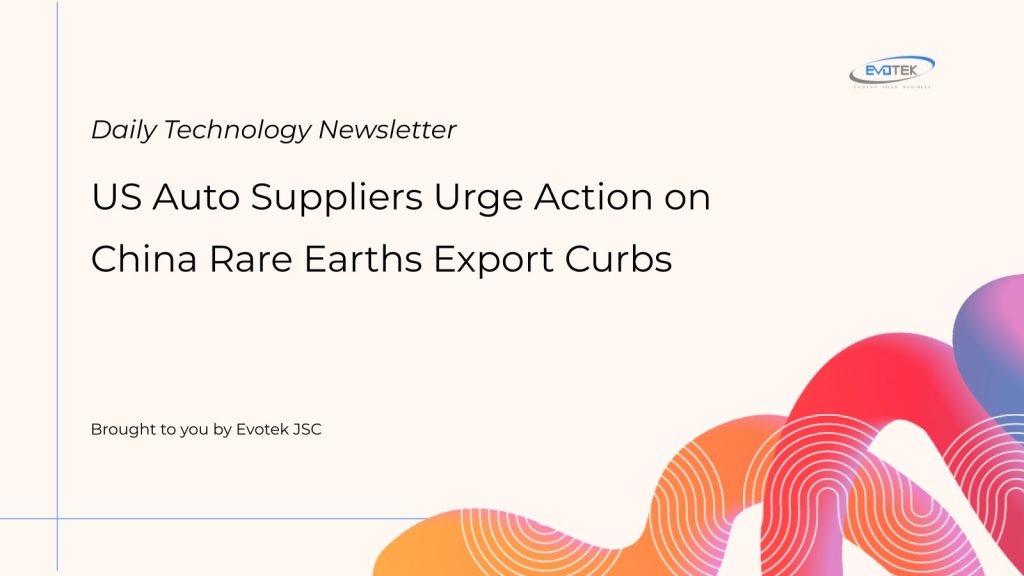A coalition of U.S. auto suppliers is pressing for immediate action to address China’s restrictions on rare earth exports, warning of potential disruptions to auto parts production. The industry is concerned that the new regulations, requiring export licenses from Beijing, could significantly impact the supply chain.
The restrictions, implemented in April, affect rare earth minerals vital for manufacturing various auto components. China controls a vast majority of the global processing capacity for these materials, which are used in everything from vehicle electronics to critical defense systems.
MEMA, the Vehicle Suppliers Association, released a statement emphasizing the serious and immediate risks faced by parts companies. “The situation remains unresolved and the level of concern remains very high,” the group stated. “Immediate and decisive action is needed to prevent widespread disruption and economic fallout across the vehicle supplier sector.”
This concern echoes a previous joint letter from MEMA and the Alliance for Automotive Innovation, representing major automakers like General Motors, Toyota, Volkswagen, and Hyundai. The letter highlighted that without reliable access to rare earth elements and magnets, suppliers would struggle to produce essential automotive components such as automatic transmissions, sensors, seat belts, speakers and power steering systems.
Data indicates a sharp decline in rare-earth magnet exports from China since the new regulations were introduced, with companies struggling with a complex and opaque permit application process.
The impact of these restrictions is already being felt. Ford previously shut down production of its Explorer SUV at its Chicago plant due to a rare-earth shortage, underscoring the immediate threat to U.S. automotive manufacturing.
The industry hopes for swift government intervention to resolve the issue and ensure a stable supply of these critical materials.

 日本語
日本語 한국어
한국어 Tiếng Việt
Tiếng Việt 简体中文
简体中文